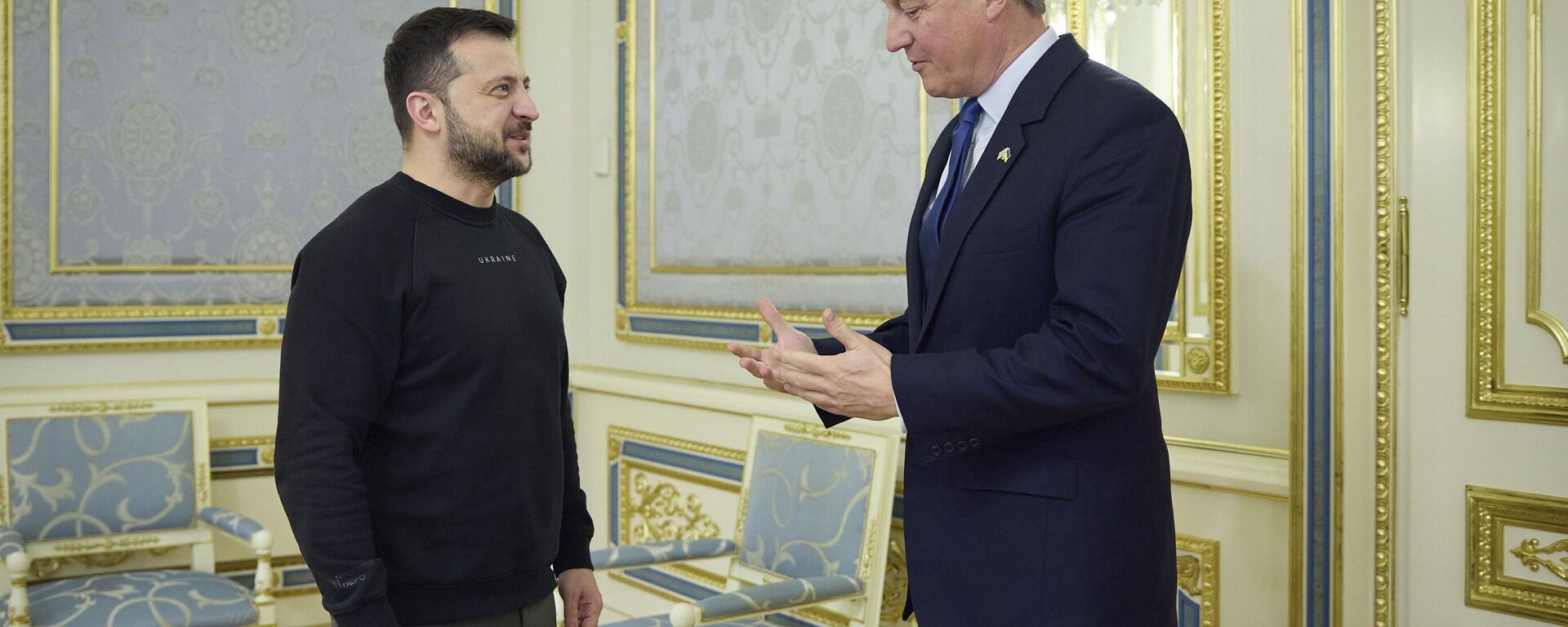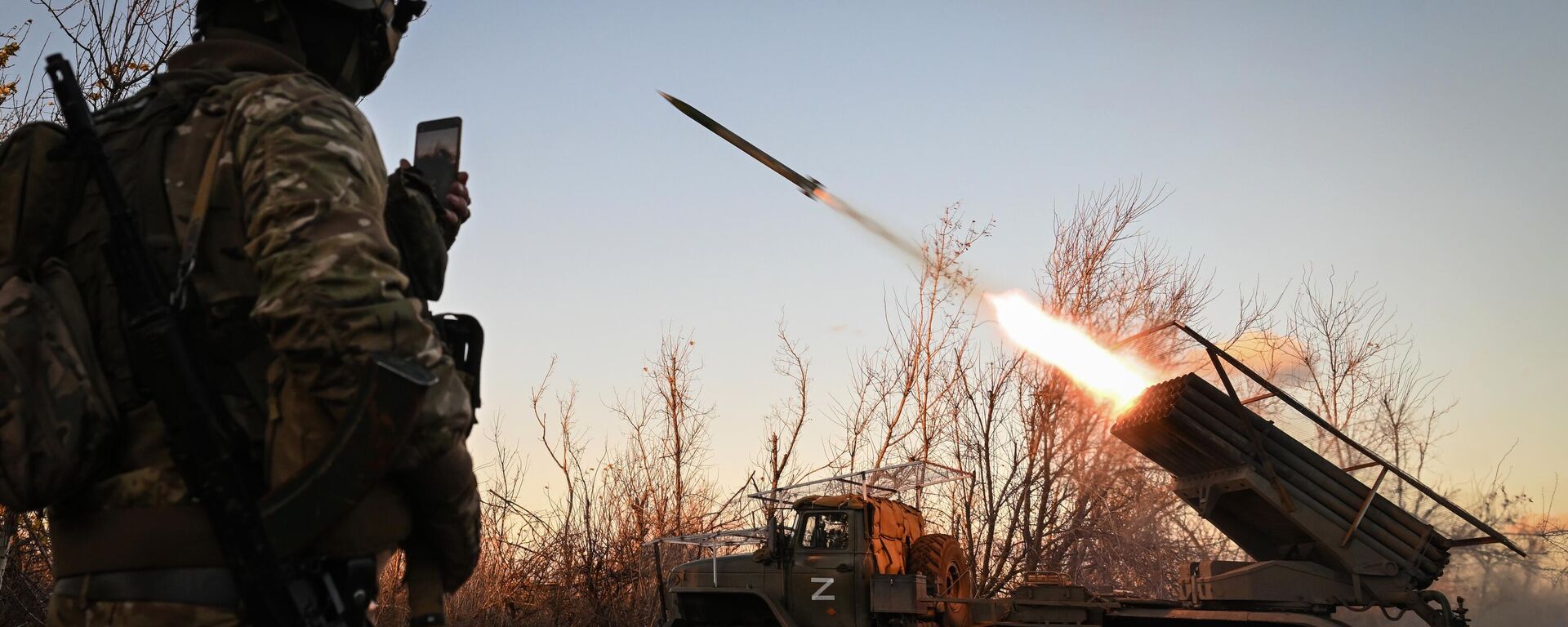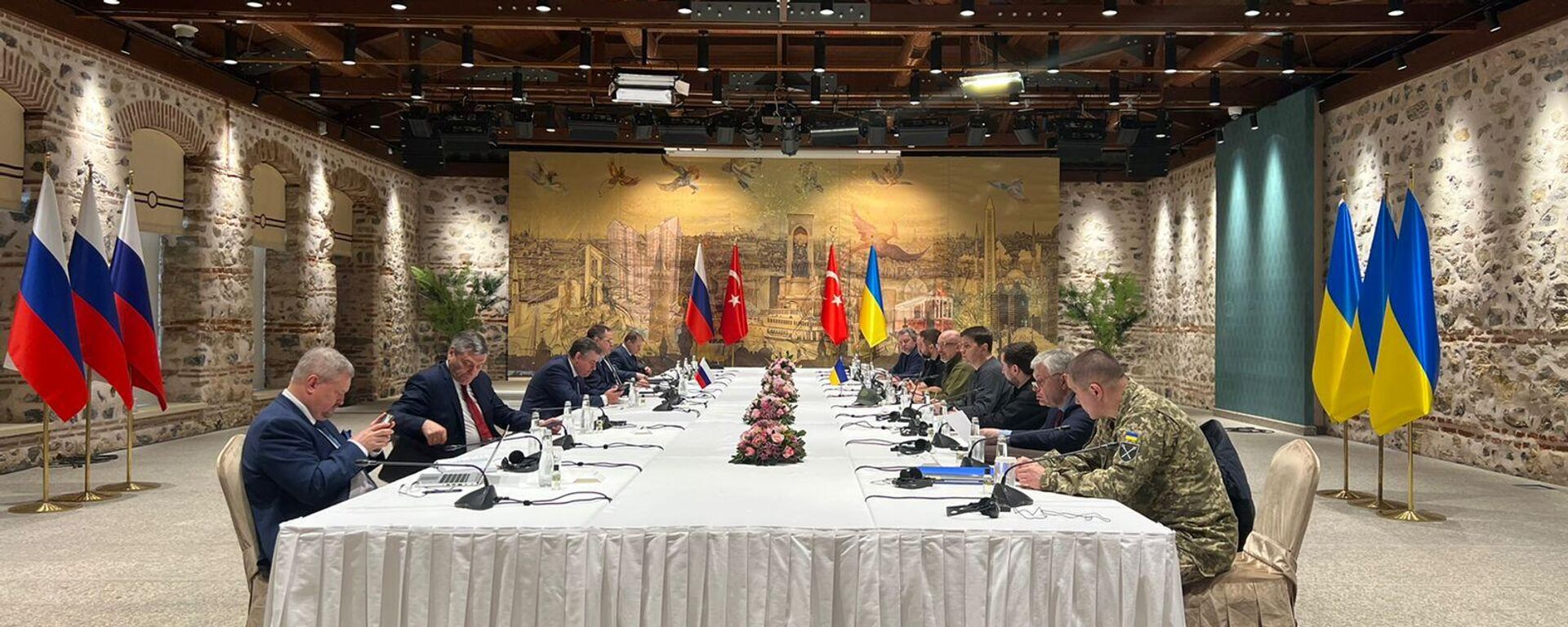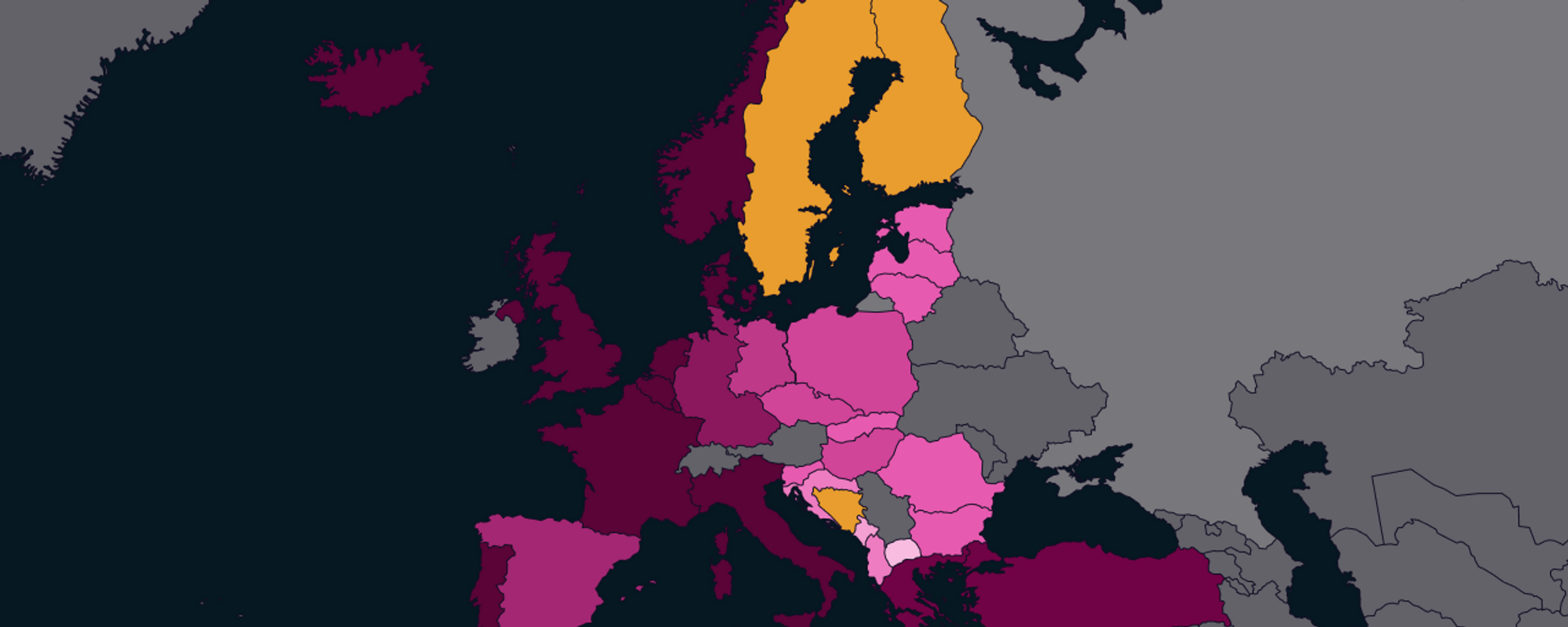Russia Won't Agree to 'Minsk-3.0' Deal on Ukraine: Here's Why

© Photo : Russian media
Subscribe
Recent weeks have seen a flurry of media reports and remarks by officials on possible peace talks aimed at ending the NATO-Russia proxy war in Ukraine. But the trust deficit between Moscow and Washington appears to be simply be too great after the West’s thirty-year “continuum of deception,” says Russian foreign policy strategist Dmitry Suslov.
Ukrainian Armed Forces commander-in-chief Valery Zaluzhny’s admission to British media at the start of November that Ukraine’s counteroffensive has faltered and that there would be no “deep and beautiful breakthrough” has been followed up with a series of reports in US and European media about Western officials broaching the subject of peace talks, and even “pressuring” President Zelensky to make a deal.
Publicly, US officials have put on a stiff upper lip, assuring that any peace negotiations will be “on terms…acceptable to Ukraine” to try and convince the rest of the world that the Ukraine campaign has not been a failure and that the supply of tens of billions of dollars in NATO military hardware hasn’t been for naught.
Russia will either have to “come to the negotiating table on terms that would be acceptable to Ukraine…or they will face a stronger Ukraine, backed by a stronger defense industrial base in the United States, in Europe, and in Ukraine that has more ability to go on the offense,” US deputy national security advisor John Finer warned during a talk at a DC neocon think tank this week. The Kremlin rejected Finer’s comments as “absolutely unrealistic.”
“I don’t think that there are necessary preconditions for peace talks,” Russian foreign policy strategist Dmitry Suslov told Sputnik’s New Rules podcast.
“The objective reasons for Western interest in peace talks are there because the correlation of forces on the Ukrainian conflict is shifting in Russia’s favor, has already shifted in Russia’s favor. And I think Russian preponderance in all aspects on the front will continue to grow – in terms of the number of people…in terms of weapons and ammunition, in terms of the ability to deliver and supply those weapons and ammunition to the front, including the newest features of contemporary warfare like drones and anti-radio systems and so on and so forth. So, Russia will continue to increase its advantage and over time, this Russian material advantage will inevitably translate into breakthroughs on the front,” Suslov explained.
Leading American neoliberal and neoconservative geopolitics experts realize this, the observer believes, hence the sudden calls for a truce, some type of diplomatic settlement or at least a freeze on the conflict.
“But from the Russian perspective, we do not see a readiness for serious discussions from the Biden administration. Most likely it wants, as Americans say, to ‘kick the can down the road’ until the elections and then to think what comes next after the elections,” Suslov said.
Russia’s Real Concerns
One recent report by a well-respected US journalist suggested that forces behind the scenes in Washington have put out feelers for a peace deal with Russia involving freezing the conflict along its current frontiers, in exchange for a rump Ukrainian state’s inclusion into the NATO bloc.
Such talk focused territory marks a fundamental misunderstanding of Russia’s actual security concerns, Suslov stressed.
“They all talk about the de facto recognition of Russian control over territory and making the rest of Ukraine an anti-Russia on steroids, integration of the rump Ukraine into the Western orbit in this or that form, robust militarization of this rump Ukraine. They talk about either the Israeli model or the Korean model, both of which would imply Ukraine becoming a militarized anti-Russian fortress with very strong connections with the West. This is completely unacceptable for Russia. This is a false vision because Russia will never be satisfied with territories. The most fundamental reason why Russia is fighting this struggle is security – more fundamental questions of European security,” the geopolitical observer said.
Moscow, Suslov said, is focused not on territory, but on “Ukrainian-NATO relations, the future of NATO’s presence in Ukrainian territory, the future of Ukrainian militarization versus demilitarization” (as outlined in the Russian Foreign Ministry’s December 2021 draft treaties on ironclad security guarantees).
Accordingly, “without Western readiness to address those issues,” the Russian government will be extremely unlikely to entertain talks of peace or even a truce, the analyst believes.

5 December 2023, 18:57 GMT
Trust Deficit
Fundamentally, Suslov says, the focal point of the Russia-West crisis lies in Moscow’s utter lack of trust in the United States and its allies after decades of deception.
“The whole post-Cold War period is an endless continuum of deception by the West, starting with NATO’s enlargement and ending with the Minsk Agreements,” the observer said, referring to the peace deal signed in the Belarusian capital in February of 2015 designed to resolve the crisis in the Donbass, which successive Ukrainian governments refused to implement through the following seven years.
“Russia was sincerely interested in their implementation, but now we know that there was no intention to implement them from the Western side and that the West needed those agreements in order to win time and militarize Ukraine for a future war against Russia,” Suslov added, recalling recent remarks on this score by former Ukrainian president Petro Poroshenko, ex-German chancellor Angela Merkel, and former French president Francois Hollande.
Western powers’ sabotage of Russian-Ukrainian peace talks in the spring of 2022 – held in the first weeks after Russia kicked off its special military operation, were the latest example of Moscow’s utter inability to trust the West, according to Suslov, who recalled that at that time, Moscow was ready to return to the pre-conflict lines in exchange for security guarantees on Ukraine’s non-bloc status.
“It was a chance for Ukraine to restore, you know, almost 99 percent of its territorial integrity, to obtain security, to end war, to save the lives of thousands of people, to save its economy and so on and so forth. What did the West do? The West disrupted this peace agreement. Why? Because the West sensed blood like sharks do in the ocean. And the West decided to use this conflict in order to weaken Russia, to inflict a military defeat, an economic defeat, and international political isolation on Russia,” the veteran foreign policy strategist said.
“The goal was to get rid of Russia as a great power, to solve the ‘Russian question’ in international relations and substantially shift the global power balance back into the West’s favor,” Suslov stressed. “Because if you eliminate Russia as a great power, then you encircle China and then the correlation of forces between the United States and China also shifts in favor of the United States. That was what the West wanted. And all their rhetoric about ‘helping’ Ukraine is just a lie. Because in fact, they are sacrificing Ukraine for the sake of ‘undermining and defeating’ Russia. So having said all of that, of course there is no trust.”
Suslov is confident that Russia will not agree to any Minsk 3.0 type peace deal to satiate NATO elites now that they are losing, and that Moscow will not entertain Ukrainian membership in the Western bloc.
“There must be ironclad guarantees and a reality that Ukraine can no longer be able to pose a military threat to Russia with Western help. Russia is not afraid of Ukraine as Ukraine, Russia is afraid of Ukraine being a Western bulwark on Russia’s borders. So there must be such a reality in which the US, the West, simply will not be able to use Ukraine as an instrument, as a bulwark against Russia. And I think that the special military operation will continue up until that moment,” the observer summed up.




